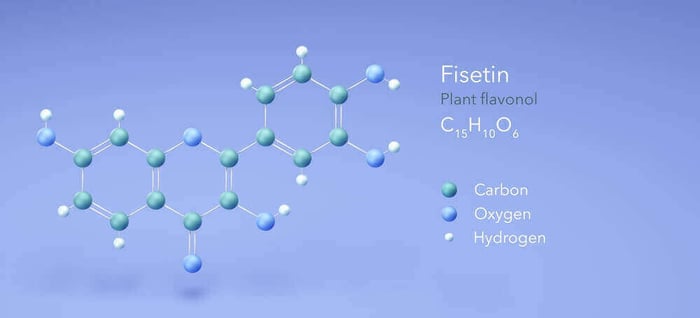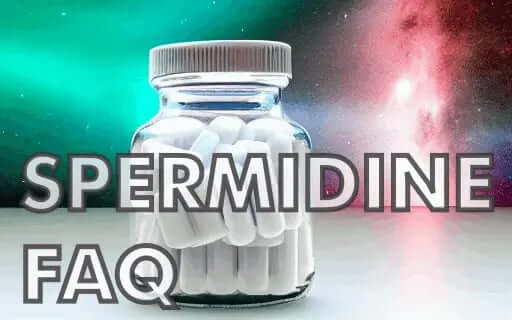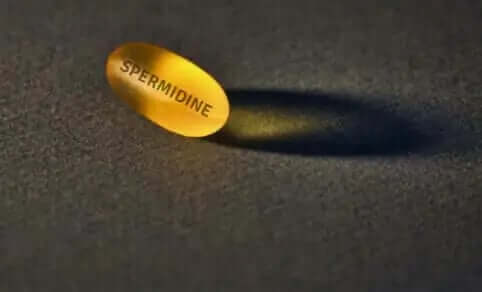What is Fisetin? Understanding This Powerful Anti-Aging Flavonoid
What is fisetin and why are researchers excited about its potential? This naturally occurring flavonoid compound found in fruits and vegetables shows remarkable promise for supporting healthy aging, brain function, and cellular health. From extending lifespan in animal studies to protecting neurons and reducing inflammation, fisetin represents a breakthrough in longevity science that could transform how we approach aging.

What is Fisetin? The Essential Guide to This Natural Compound
Fisetin belongs to the flavonol family, a specialized group within the broader flavonoid category of plant compounds. As a polyphenol, fisetin occurs naturally in numerous fruits and vegetables, with strawberries containing particularly high concentrations. Scientists have identified this compound as one of the most potent natural substances for supporting healthy aging processes.
The discovery of fisetin's unique properties emerged from research into plant compounds that protect cells from stress and damage. Unlike many other flavonoids, fisetin demonstrates exceptional ability to cross the blood-brain barrier, making it particularly valuable for cognitive health support. This characteristic sets it apart from other beneficial plant compounds and explains growing scientific interest in its therapeutic potential.
Natural Sources: Where to Find Fisetin in Your Diet
While many people wonder what is fisetin found in, the answer includes a delicious variety of everyday foods. Strawberries lead the list with the highest concentration, containing approximately 160 micrograms per gram. Other excellent sources include:
- Apples - Particularly in the skin, providing 26.9 micrograms per gram
- Persimmons - Offering 10.5 micrograms per gram of this sweet fruit
- Onions - Contributing 4.8 micrograms per gram, especially red varieties
- Grapes - Containing 3.9 micrograms per gram in both red and white varieties
- Cucumbers - Providing 2.8 micrograms per gram when eaten with peel
- Tomatoes - Adding 0.9 micrograms per gram to your daily intake
Understanding Flavonoids: The Bigger Picture
To truly grasp what is fisetin and its significance, understanding the broader flavonoid family proves essential. Flavonoids represent over 6,000 different compounds found throughout the plant kingdom. These remarkable molecules serve as nature's defense system, protecting plants from environmental stressors while offering similar protective benefits to humans who consume them.
Research consistently demonstrates that flavonoids provide powerful antioxidant effects, capturing harmful free radicals and reducing oxidative stress throughout the body. This protective action helps prevent cellular damage that accumulates over time, contributing to various age-related health challenges.
The Harvard Study: Proof of Cognitive Benefits
A groundbreaking Harvard University study published in the journal Neurology followed over 77,000 participants to examine connections between flavonoid consumption and cognitive health. The research revealed compelling evidence that regular intake of flavonoid-rich foods significantly reduced the risk of subjective cognitive decline (SCD), including memory loss and confusion.
Participants who consumed the highest amounts of flavonoids showed a 20% lower risk of developing cognitive concerns compared to those with minimal intake. This massive study provides robust evidence supporting the brain-protective benefits of compounds like fisetin, offering hope for maintaining mental sharpness throughout life.
What is Fisetin Good For? Exploring the Science
Scientists exploring what is fisetin capable of achieving have uncovered multiple mechanisms through which this compound supports health and longevity. Published research in Antioxidants & Redox Signaling highlights three primary areas where fisetin shows exceptional promise:
1. Neurotrophic Support: Protecting Your Brain
Fisetin demonstrates remarkable ability to support both developing and mature neurons. This neurotrophic effect means the compound helps brain cells thrive, promoting the growth of new neural connections while protecting existing ones. Research indicates fisetin activates specific pathways that enhance neuronal survival, potentially slowing or preventing age-related cognitive decline.
Studies show fisetin increases production of brain-derived neurotrophic factor (BDNF), often called "brain fertilizer" for its role in promoting neural growth and plasticity. Higher BDNF levels correlate with improved memory, learning capacity, and overall cognitive function.
2. Anti-Inflammatory Power: Calming Chronic Inflammation
Chronic inflammation, sometimes called "inflammaging," represents a major driver of age-related health challenges. What is fisetin's role in addressing this concern? Research reveals it acts as a potent anti-inflammatory agent, reducing inflammatory markers throughout the body.
Fisetin inhibits multiple inflammatory pathways, including NF-κB and COX-2, which contribute to pain, tissue damage, and accelerated aging. By calming these inflammatory responses, fisetin may help alleviate joint discomfort, support cardiovascular health, and protect against inflammatory conditions that become more common with age.
3. Anti-Carcinogenic Properties: Cellular Protection
Emerging research suggests fisetin may help prevent or delay the development of certain cancers through multiple protective mechanisms. The compound triggers apoptosis (programmed cell death) in damaged cells while protecting healthy cells from mutation. Additionally, fisetin appears to inhibit angiogenesis, the process by which tumors develop blood supplies necessary for growth.
Laboratory studies demonstrate fisetin's ability to sensitize cancer cells to conventional treatments while reducing side effects on healthy tissue. Though human clinical trials remain limited, these findings offer promising directions for future cancer prevention strategies.
Fisetin and Longevity: The Lifespan Connection
Perhaps the most exciting discovery about what is fisetin relates to its potential for extending both healthspan and lifespan. Research published in eBioMedicine demonstrated that fisetin supplementation increased the lifespan of mice by approximately 10% while significantly improving their health during aging.
The study's authors noted that fisetin's safety profile, natural occurrence in foods, and availability as a dietary supplement make it "imminently translatable" to human use. This research suggests fisetin could offer significant benefits for elderly individuals seeking to maintain health and vitality.
Senolytic Activity: Clearing Cellular Debris
One key mechanism behind fisetin's longevity benefits involves its senolytic properties. Senescent cells, often called "zombie cells," stop dividing but refuse to die, secreting inflammatory compounds that damage surrounding tissue. What is fisetin's unique ability? It selectively eliminates these problematic cells while leaving healthy cells untouched.
By clearing senescent cells, fisetin helps restore tissue function, reduce inflammation, and potentially reverse aspects of aging. This cellular housekeeping effect may explain many of fisetin's wide-ranging benefits for health and longevity.
What is Fisetin's Impact on Age-Related Neurological Concerns?
Research into what is fisetin revealing about brain health continues to generate excitement among neuroscientists. A study published in Molecular Neurobiology examined fisetin's effects on mice exhibiting Alzheimer's disease symptoms, with remarkable results.
Treated mice showed significant improvements in memory function, reduced brain inflammation, and prevention of neurodegeneration. The researchers concluded that "polyphenolic flavonoids such as fisetin could be a beneficial, effective and safe neuroprotective agent for preventing neurological disorders."
Memory Enhancement and Cognitive Protection
Multiple studies confirm what is fisetin capable of achieving for memory and learning. The compound appears to:
- Enhance long-term potentiation - The cellular basis of memory formation
- Protect against oxidative stress - Preventing damage to brain cells
- Reduce amyloid beta accumulation - A hallmark of Alzheimer's disease
- Improve synaptic function - Supporting communication between neurons
- Activate memory-related pathways - Including ERK and CREB signaling
Optimal Dosage and Supplementation Strategies
Understanding what is fisetin's optimal dosage remains an evolving area of research. While dietary intake through fruits and vegetables provides health benefits, achieving therapeutic levels often requires supplementation. Current research suggests doses ranging from 100mg to 1000mg daily, though individual needs vary based on health goals and conditions.
Timing matters when considering fisetin supplementation. Some researchers recommend intermittent high-dose protocols for senolytic effects, while others suggest consistent daily intake for general health support. Consulting with healthcare providers helps determine the most appropriate approach for individual circumstances.
Enhancing Absorption and Bioavailability
What is fisetin's bioavailability challenge? Like many flavonoids, fisetin shows relatively low absorption when taken alone. However, several strategies can enhance its effectiveness:
- Take with healthy fats - Fisetin is fat-soluble, making absorption better with meals containing olive oil, avocados, or nuts
- Consider liposomal formulations - These specialized preparations improve cellular uptake
- Combine with piperine - Black pepper extract enhances absorption of many compounds
- Space doses throughout the day - Smaller, frequent doses may improve overall absorption
Safety Profile and Considerations
One reassuring aspect of what is fisetin involves its excellent safety profile. As a compound naturally present in common foods, fisetin has been consumed by humans throughout history without reported adverse effects. Clinical studies using therapeutic doses have similarly shown minimal side effects, with most participants tolerating supplementation well.
However, certain considerations apply. Individuals taking blood-thinning medications should consult healthcare providers, as fisetin may enhance anticoagulant effects. Pregnant or nursing women should also seek medical guidance before supplementation, as specific studies in these populations remain limited.
Future Directions: What is Fisetin's Potential?
The future of fisetin research appears exceptionally bright. Multiple human clinical trials currently investigate its effects on aging, cognitive function, and various health conditions. As these studies progress, our understanding of optimal dosing, timing, and applications will continue expanding.
Researchers explore innovative delivery methods to maximize fisetin's benefits, including nanotechnology-based formulations and combination therapies. These advances promise to unlock even greater potential from this remarkable compound.
Making Fisetin Part of Your Wellness Journey
Incorporating fisetin into a comprehensive wellness strategy offers exciting possibilities for supporting healthy aging. Whether through dietary sources or quality supplementation, this powerful flavonoid provides multiple pathways for enhancing vitality and longevity.
Success with fisetin supplementation often involves patience and consistency. While some benefits may appear quickly, others develop over weeks or months of regular use. Tracking improvements in energy, mental clarity, and overall well-being helps gauge individual responses to supplementation.
Try SENOLYTICS 500 Fisetin Supplements
Ready to experience what is fisetin capable of achieving for your health? RevGenetics offers pharmaceutical-grade SENOLYTICS 500 Fisetin supplements, manufactured in FDA-registered facilities following Current Good Manufacturing Practices (CGMP).
Every batch undergoes rigorous third-party testing to ensure purity, potency, and safety. Our commitment to quality means you receive exactly what's stated on the label - premium fisetin designed to support your longevity goals. Explore our complete line of longevity supplements to create a comprehensive anti-aging protocol tailored to your needs.
Frequently Asked Questions About Fisetin
What is fisetin and where does it come from?
Fisetin is a naturally occurring flavonoid compound found primarily in strawberries, apples, persimmons, onions, and other fruits and vegetables. This powerful polyphenol belongs to the flavonol subclass and has gained attention for its potential anti-aging, neuroprotective, and anti-inflammatory properties. Unlike synthetic compounds, fisetin has been part of the human diet for thousands of years through regular food consumption.
What is fisetin good for in terms of health benefits?
Research suggests fisetin offers multiple health benefits including enhanced memory and cognitive function, reduced inflammation throughout the body, protection against oxidative stress, potential cancer-preventive properties, and the ability to clear senescent cells that contribute to aging. Studies have shown it may extend lifespan in animal models while improving overall healthspan. These benefits make fisetin particularly valuable for supporting healthy aging and maintaining vitality.
How much fisetin should I take daily?
While optimal dosing continues to be researched, studies typically use doses ranging from 100mg to 1000mg daily. Some protocols recommend intermittent high-dose cycles for senolytic effects, while others suggest consistent daily supplementation. Individual needs vary based on health goals, age, and existing conditions. Starting with lower doses and gradually increasing while monitoring effects provides a sensible approach. Always consult healthcare providers for personalized recommendations.
What is fisetin's safety profile like?
Fisetin demonstrates an excellent safety profile with no reported serious adverse effects in clinical studies. As a compound naturally present in common foods, it has been safely consumed throughout human history. Most people tolerate fisetin supplementation well, though individuals on blood-thinning medications should consult healthcare providers due to potential interactions. Pregnant or nursing women should also seek medical guidance before beginning supplementation.
Can I get enough fisetin from food alone?
While consuming fisetin-rich foods like strawberries provides health benefits, achieving therapeutic levels through diet alone proves challenging. You would need to eat several pounds of strawberries daily to match doses used in research studies. This makes supplementation a practical option for those seeking fisetin's full potential benefits. However, including fisetin-rich foods in your diet still offers valuable nutritional support alongside supplementation.
What is fisetin's mechanism of action in the body?
Fisetin works through multiple pathways including powerful antioxidant activity that neutralizes free radicals, activation of sirtuins associated with longevity, inhibition of inflammatory pathways like NF-κB, selective elimination of senescent cells, and enhancement of autophagy for cellular cleanup. It also crosses the blood-brain barrier effectively, allowing direct neuroprotective effects. These combined mechanisms contribute to fisetin's wide-ranging benefits for health and longevity.
How long does it take to see results from fisetin supplementation?
Timeline for results varies depending on individual factors and specific health goals. Some people report improved energy and mental clarity within days to weeks, while other benefits like reduced inflammation or enhanced memory may develop over several months. Senolytic effects typically require intermittent high-dose protocols over time. Consistency proves key - regular supplementation allows fisetin to accumulate and exert its full range of beneficial effects.
What is fisetin's role in brain health and memory?
Fisetin shows exceptional promise for supporting brain health through multiple mechanisms. It enhances long-term potentiation crucial for memory formation, increases brain-derived neurotrophic factor (BDNF) levels, reduces neuroinflammation, prevents accumulation of toxic proteins associated with Alzheimer's disease, and protects neurons from oxidative damage. Studies demonstrate improved memory performance and cognitive function in animal models, with human trials currently investigating similar benefits.
Can fisetin be combined with other supplements?
Fisetin combines well with many other supplements for synergistic effects. Popular combinations include quercetin for enhanced senolytic activity, resveratrol for additional longevity support, curcumin for anti-inflammatory benefits, and omega-3 fatty acids for brain health. Some formulations include piperine from black pepper to improve absorption. Always research potential interactions and consider spacing different supplements throughout the day for optimal absorption.
What is fisetin's potential for extending lifespan?
Research demonstrates fisetin's remarkable ability to extend lifespan in various organisms, from yeast to mice. In mouse studies, fisetin supplementation increased lifespan by approximately 10% while significantly improving health markers during aging. This longevity effect appears linked to fisetin's senolytic properties, ability to reduce inflammation, and activation of cellular pathways associated with extended lifespan. While human studies continue, these findings offer compelling evidence for fisetin's anti-aging potential.







